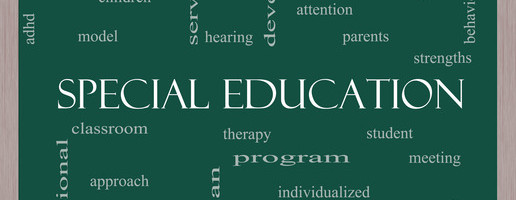
Dueling Disabilities and the Hijacking of Special Education Services
Senate education committee members recently argued about an amendment to the Elementary and Secondary Education Act, put forward by Sen. Bill Cassidy, R-La. The amendment was to provide teachers with training to work with students with dyslexia. It turned into a dispute between parent groups and policymakers. No one seemed to realize that special education services in public schools were hijacked a long time ago.
On one side you had the National Center for Learning Disabilities, the Yale Center for Dyslexia and Creativity, and Decoding Dyslexia who wanted the teacher training. The National PTA, National Down Syndrome Society, and the NEA opposed it. Some parents didn’t like the amendment. Their students with autism and ADHD are not under the label of learning disabilities (even though the disabilities could overlap), so they didn’t think it was fair.
All of this made me scratch my head for a number of reasons.
First, remember P.L. 94-142 or IDEA? In order to receive federal funds, states must develop and implement policies that assure a free appropriate public education (FAPE) to all children with disabilities.
This doesn’t say a free appropriate public education for only students with autism, oronly students with dyslexia, or only any other student disability group. It says a free appropriate public education (FAPE) to all children with disabilities.
Emphasis “all” and “free appropriate.”
I also remember when an appropriate education meant a student with disabilities had access to a teacher trained for the particular disability area. Special ed. teachers had to take about thirty credit hours from an accredited university in the special area–in this case learning disabilities–to be credentialed.
Now, when I hear there is a struggle to train teachers, I realize it is the result of years of education reform which stripped public schools of the necessary services students with disabilities should have been, and still should be, getting in their public schools. Regular education teachers, on top of everything else they do, must address special education. Specialists have been increasingly pushed out of the picture.
That Cassidy believes he needs an amendment for teacher training to assist students with dyslexia demonstrates this point. Furthermore, Cassidy and his wife started a charter school for students with dyslexia to help their daughter who apparently has dyslexia. Cassidy made the point that there are only three charters in the country that deal with dyslexia.
And why do we need charter schools? Why aren’t public schools addressing dyslexia Dueling Disabilities and the Hijacking of Special Education Services:
